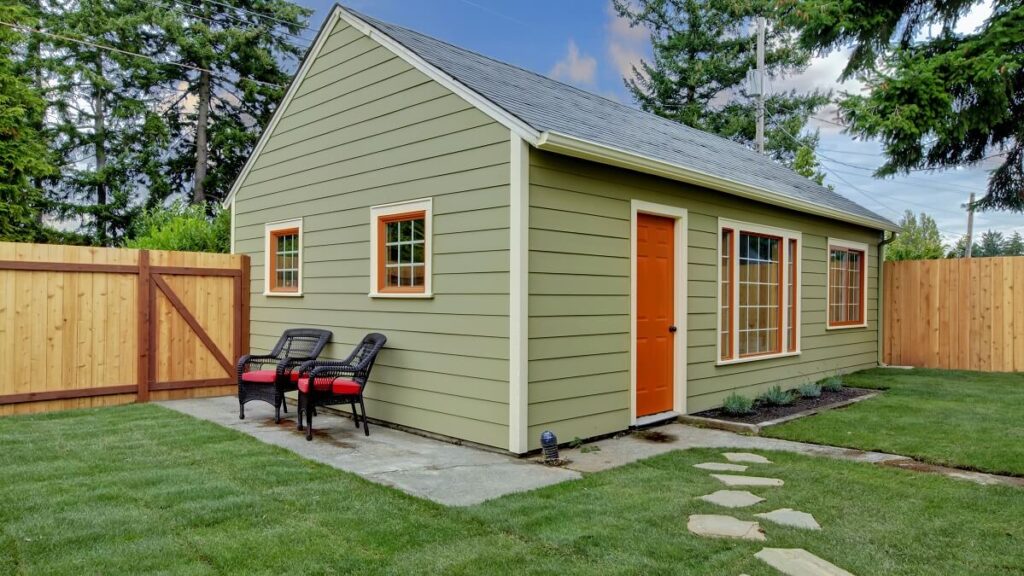A granny flat arrangement, also known as a granny flat interest, is an agreement between you and another person for accommodation for life.
A granny flat arrangement or right is where you pay for the right to live in a specific home, that you don’t own, for life. This can be someone else’s home, but these arrangements can also be used to transfer assets to your children without triggering gifting issues with the Age Pension.
The term granny flat is not a description of the type of property for Centrelink purposes, rather it is just an indication of the type of agreement you have reached. So the property does not need to be an actual ‘granny flat’ to be classed under a granny flat arrangement.
To be eligible the property must be:
- all or part of a private residence
- your principal home
- not owned by you, your partner or a trust or company that you control.
The granny flat right only lasts for your lifetime and is not part of your estate when you die.
Granny flat arrangements are usually family arrangements providing company and help close by for older people. But that brings its own set of risks with it.
Risks to consider
Although granny flat arrangements can potentially be a way to provide low-cost housing for yourself in retirement, the arrangements also have a high risk of turning sour.
Mary Lovelock, senior solicitor at Legal Aid NSW’s Elder Abuse Service, says many granny flat arrangements resulted in older people giving significant sums of money to an adult child in return for the promise of care.
But these arrangements are often heavily weighted in favour of the child, and can leave the parent homelessness if the agreement goes bad. For example, if the relationship between parent and child breaks down, or that between the child and their partner.
“We have had several clients come to us with this issue who are on the verge of homelessness. It can cause significant financial and mental stress for already vulnerable people,” she says.
Creating a granny flat arrangement
If you’re interested in setting up a granny flat arrangement, it is best to seek financial and legal advice before you begin.
You create a granny flat arrangement when you exchange assets, money or both for a right to live in someone’s property for life.
For example, you could transfer:
- ownership of your home but keep a lifelong right to live there or in another private property
- assets, including money, in return for a lifelong right to live in a property.
Centrelink may accept that you have a granny flat arrangement even if it is not in writing, however it does recommend having a legal document in place to prove what you have agreed to and help prevent any problems occurring at a later stage.
The document should:
- confirm your right to live in the home for life
- say if you’ve agreed to pay rent or look after any upkeep of the property
- say how the owner will compensate you if they want you to give up your granny flat agreement.
The government recently announced that it would provide a targeted capital gains tax (CGT) exemption for granny flat arrangements where there is a formal written agreement in place.
The tax implications are often a key impediment to families creating formal and legally enforceable granny flat arrangements.
How Centrelink assesses granny flat arrangements
You will need to inform Centrelink of how much you transferred or paid to the owner for your granny flat arrangement and, depending on how much you paid, this will determine whether or not you are a determined to be a ‘homeowner’
This is done by making a determination on whether or not you have overpaid for the arrangement or not. If you are determined to have overpaid, then you can be classed as a homeowner and therefore have a lower assets test limit for claiming pensions.
Centrelink won’t consider you to have paid more than the granny flat arrangement is worth if you’re:
- transferring the title of your home and keeping a lifetime right to live there or in another property
- paying to build a granny flat on someone else’s property
- paying to convert someone else’s home to suit your needs and getting a lifetime right to live there
- buying a property in someone else’s name and getting a lifetime right to live there.
Leaving the property
If you leave the property within five years, Centrelink will review the granny flat arrangement.
If the reason for leaving could have been expected then the gifting rules will apply. However, if it was something unexpected then the gifting rules may not apply. Centrelink will assess this case by case.
Unexpected reasons may include sudden illness, family relationship breakdown, elder abuse or property damage.
What if the property is sold?
Don’t worry, if there is a formal granny flat arrangement in place then the owner can’t kick you out if the property is sold. But they do have the right to one of the following:
- sell it but make your right to live there a condition of sale
- transfer your granny flat arrangement to another property
- give money or assets to you in return for giving up your granny flat arrangement.
Do you have a granny flat arrangement? How does the situation work for you?
Also read: How to choose the right Centrelink payment

